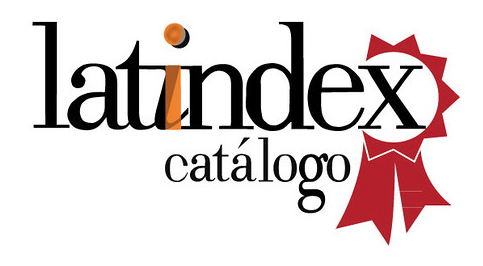Motivational Assessment of Engineering Students at two centres of the University of Extremadura
DOI: https://doi.org/10.20868/abe.2022.2.4943
Texto completo:
PDF (English)Resumen
Palabras clave
Referencias
Y. Kim, A.C. Brady, C.A. Wolters, "Development and validation of the brief regulation of motivation scale", Learn. Individ. Differ. 67, 259-265, 2018. https://doi.org/10.1016/j.lindif.2017.12.010. https://doi.org/10.1016/j.lindif.2017.12.010
S. Järvelä, H. Järvenoja, J. Malmberg, "How elementary school students' motivation is connected to self-regulation", Educ. Res. Eval. 18, 65-84, 2012. https://doi.org/10.1080/13803611.2011.641269. https://doi.org/10.1080/13803611.2011.641269
A.C. Garn, A.J.S. Morin, "University students' use of motivational regulation during one semester", Learn. Instr. 74, 101436, 2021. https://doi.org/10.1016/j.learninstruc.2020.101436. https://doi.org/10.1016/j.learninstruc.2020.101436
M. Carrillo, J. Padilla, T. Rosero, M. Sol Villagómez, "La motivación y el aprendizaje", Alteridad. 4, 20, 2011. https://doi.org/10.17163/alt.v4n2.2009.03. https://doi.org/10.17163/alt.v4n2.2009.03
M. Fırat, H. Kılınç, T.V. Yüzer, "Level of intrinsic motivation of distance education students in e-learning environments", J. Comput. Assist. Learn. 34, 63-70, 2018. https://doi.org/10.1111/jcal.12214. https://doi.org/10.1111/jcal.12214
X. Wang, "Why Students Choose STEM Majors", Am. Educ. Res. J. 50, 1081-1121, 2013. https://doi.org/10.3102/0002831213488622. https://doi.org/10.3102/0002831213488622
M. Corrales-Serrano, "Estudio de las Motivaciones Internas y Externas para la Elección de Modalidad del Alumnado de Bachillerato". Incidencia en la Didáctica de las Ciencias Sociales, Universidad de Extremadura, 2020.
J.P. Carrasco-Amador, J. García-Sanz-Calcedo, F.J. Moral, J. González-Domínguez, M. Matamoros-Pacheco, G. Sánchez-Barroso, "Comprehensive Virtualization of Graphic Expression Subjects in Engineering Degrees", Adv. Build. Educ. 5, 9, 2021. https://doi.org/10.20868/abe.2021.2.4718. https://doi.org/10.20868/abe.2021.2.4718
K.A. Robinson, Y. Lee, E.A. Bovee, T. Perez, S.P. Walton, D. Briedis, L. Linnenbrink-Garcia, "Motivation in transition: Development and roles of expectancy, task values, and costs in early college engineering.", J. Educ. Psychol. 111, 1081-1102, 2019. https://doi.org/10.1037/edu0000331. https://doi.org/10.1037/edu0000331
B. Lazzarini, A. Pérez-Foguet, A. Boni, "Key characteristics of academics promoting Sustainable Human Development within engineering studies", J. Clean. Prod. 188, 237-252, 2018. https://doi.org/10.1016/j.jclepro.2018.03.270. https://doi.org/10.1016/j.jclepro.2018.03.270
J. González-Domínguez, G. Sánchez-Barroso, F. Zamora-Polo, J. García-Sanz-Calcedo, "Application of Circular Economy Techniques for Design and Development of Products through Collaborative Project-Based Learning for Industrial Engineer Teaching", Sustainability. 12, 4368, 2020. https://doi.org/10.3390/su12114368. https://doi.org/10.3390/su12114368
J. Hudson, Y. Kuroda, P.C.H. Morel, "Personality and motivational predictors of well-being and coping during COVID-19: A reversal theory analysis", Pers. Individ. Dif. 175, 110703, 2021. https://doi.org/10.1016/j.paid.2021.110703. https://doi.org/10.1016/j.paid.2021.110703
G. Sánchez-Barroso, J. González-Domínguez, J. García-Sanz-Calcedo, F. Zamora-Polo, "Analysis of Learning Motivation in Industrial Engineering Teaching in University of Extremadura (Spain)", Sustainability. 12, 4987, 2020. https://doi.org/10.3390/su12124987. https://doi.org/10.3390/su12124987
Montero, J. Alonso Tapia, "El cuestionario MAPE-II". In Motivar en la Adolescencia: Teoría, Evaluación e Intervención,Servicio de Publicaciones de la Universidad Autónoma de Madrid, Madrid, Espa-a, 1992.
G.F. Kuder, M.W. Richardson, "The theory of the estimation of test reliability", Psychometrika. 2, 151-160, 1937. https://doi.org/10.1007/BF02288391
IBM Corp, IBM Statistics, 25th ed., (2019).
M. Botejara-Antúnez, G. Sánchez-Barroso, J. González-Domínguez, J. García-Sanz-Calcedo, "Determining the Learning Profile of Engineering Projects Students from Their Characteristic Motivational Profile", Educ. Sci. 12, 256, 2022. https://doi.org/10.3390/educsci12040256. https://doi.org/10.3390/educsci12040256
A.G. González, D.R. Salgado, J.G. Sanz-Calcedo, C.C. García, J.B. Muriel, O.L. Pérez, F.J.Á. García, "A teaching methodology for the real-time assessment of students' competencies related to manufacturing subjects using technology based on electronic devices", Procedia Manuf. 41, 579-586, 2019. https://doi.org/10.1016/j.promfg.2019.09.045. https://doi.org/10.1016/j.promfg.2019.09.045
Enlaces refback
- No hay ningún enlace refback.
Copyright (c) 2022 Autor / BY-NC-ND

Este obra está bajo una licencia de Creative Commons Reconocimiento-NoComercial-SinObraDerivada 4.0 Internacional.













